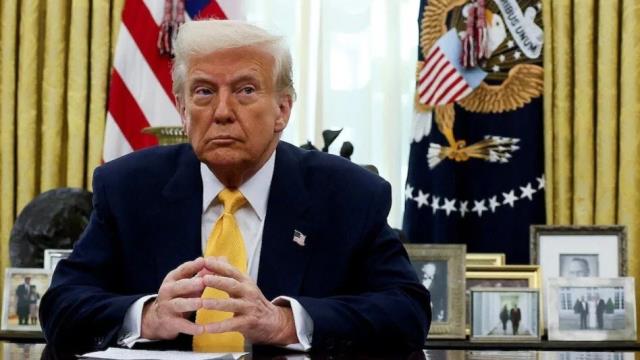President Donald Trump’s recent announcement of extensive tariffs has sent shockwaves through global markets and economies. The new policy imposes a 10% baseline tariff on all imports to the United States, with significantly higher rates targeting specific countries. For instance, China faces a 34% tariff, the European Union 20%, Japan 24%, and Pakistan 29%. These measures are part of what the administration terms “reciprocal tariffs,” aimed at countering perceived trade imbalances and unfair practices.
Global Economic Implications
Economists warn that these tariffs could reignite inflation, increase the risk of a U.S. recession, and elevate costs for the average American family by thousands of dollars annually. The average duty on imports to the U.S. has surged to 22.5%, up from 2.5% the previous year, marking the highest level in over a century.
Impact on Pakistan
Pakistan is notably affected, with a 29% tariff imposed on its exports to the U.S. This action is reportedly in response to the 58% tariffs that Pakistan imposes on U.S. goods, which include considerations of “currency manipulation and trade barriers.” The U.S. Trade Representative’s National Trade Estimate Report highlights concerns over Pakistan’s high tariff rates and additional duties on products such as automobiles and finished goods. Furthermore, Pakistan’s use of statutory regulatory orders (SROs) to grant sector-specific import duty exemptions without stakeholder consultation has been cited as a trade barrier.
International Reactions
The European Union, facing a 20% tariff, has expressed confusion and concern over the punitive measures, especially given the World Trade Organization’s calculation of the EU’s average tariff rate at 5%. Other nations, including those in Africa and Southeast Asia, are also grappling with high reciprocal tariffs, raising fears of a potential global trade war.
Market Response
The announcement has led to turbulence in world markets, with significant drops in stock indices and fluctuations in currency values. Investors are bracing for increased volatility as the full impact of the tariffs unfolds.
As the situation develops, governments and businesses worldwide are assessing the ramifications of these tariffs and considering potential responses to mitigate economic disruptions.



Comments (0)
No comments yet. Be the first to comment!
Leave a Comment